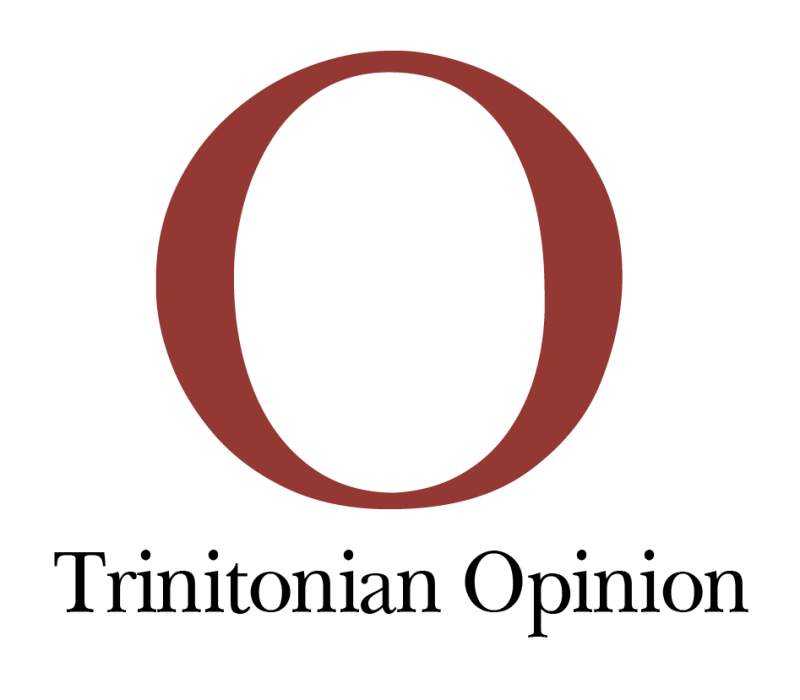Last week, the editorial board of the Trinitonian wrote a remembrance piece about the late Associate Justice, Antonin Scalia, who just recently passed away.
The editorial mentions, and rightly so, that a political firestorm has erupted in the wake of the Justice’s passing. For immediately after Scalia’s death, President Obama took to the podium and announced that he plans to “fulfill [his] constitutional responsibilities to nominate a successor [to Scalia] in due time.” Since this announcement, Senate Majority Leader Mitch McConnell stated that the Republican leadership plans on letting any replacement nomination sit on hold because he believes the people should have the say as to who gets to fill that seat via next November’s presidential election.
Enter the Trinitonian editorial, which proclaims: “Despite our own alignments and political stances, we know and support that President Barack Obama has the constitutional right to nominate the next justice. For conservatives to rob him of this ability, which is outlined in our founding document, would be an insult to Scalia, whom they seemingly respect.”
Now we must correct a constitutional fallacy in this quote. No one, not even those pesky conservatives, are disputing that President Obama has the sole right to nominate a successor. He has the absolute authority to do so. The Constitution affirms this in Article II §II: “and he shall nominate, and by and with the advice and consent of the Senate, shall appoint “¦ judges of the Supreme Court.” This is a three-part process. First, the president shall nominate a name and send that name to the Senate. Second, the Senate shall decide whether or not it wants to give consent to the president’s nomination, manifested by a majority vote. Third, if the Senate provides its consent via that majority vote, then the president can appoint that person to the Supreme Court. But if the Senate rejects the nomination, then the president may not appoint that specific person.
This leaves me wondering why the editorial board believes that conservatives are robbing the president of his right to nominate a successor to Scalia, because they are not. The Senate has no such power to block the president from nominating any person he chooses. However, it may reject, block, hold or do anything it wants to with the president’s nomination. Why? Because they have the authority to advise the president and provide consent for his selection, but only if a majority of that body believes the nominee is a worthy choice; if not, then too bad for Mr. President.
Our Constitution is a remarkable document. The framers who created it recognized that power is a corrupting influence and that it is best to separate government power into distinct branches and provide each branch with certain checks on the others as a means of balancing the use of government power. The president has an immense amount of power in being able to select nominees for the Supreme Court, who may sit there, like Scalia did, for thirty years, interpreting the Constitution. But this executive power is not absolute, for there is an important check upon the president’s authority, namely, that the Senate must advise and give consent to his nominations. This check is fundamentally important; it ensures the nation that the Upper House will vet and investigate the qualifications of any nominee.
Is it so inconceivable that a president, were he not subject to Senatorial confirmation, would unilaterally nominate and appoint his friends to the High Court? Perhaps this could be a reward for assistance during his campaign or any other reason. But this practice may undermine the common weal through institutionalizing the appointments of those who the president owes for whatever reason. The Senate acts as a check to this awesome power, ensuring that our Supreme Court is filled with those who are rightly educated and qualified to be there.
Furthermore, in our contemporary times, when the current Court makes up new rights out of thin air in conjunction with our current President, who sees no problem in unilaterally abusing executive power, what better check could the American people have than the Senate, which is constitutionally authorized to accept or reject any executive nominations?
Our Senators realize that they have a duty to abide by the Constitution, and they can still do so by withholding their consent to an Obama nominee. The president has an absolute right to nominate, but it is fallacious to assume that the right to nominate brings forth a concomitant right to have that nominee be accepted by the Senate. The separation of powers is unquestionably important; let’s never forget that.






